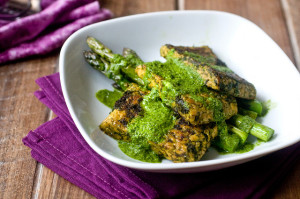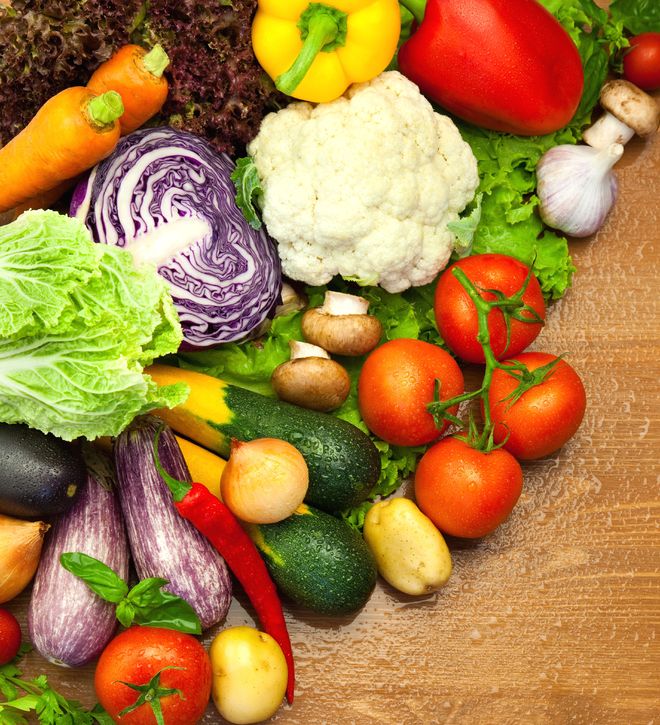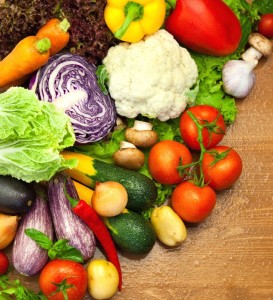
by Michelle Dwyer | Apr 3, 2014 | Blog, Health, Nutrition, Vegetarian/vegan
I love Michael Pollan’s advice: “Eat food. Not too much. Mostly plants.”
Want some easy ways to put this into practice? Here are 12 tips for eating more plants and less refined foods:
- Try replacing coffee with green or herbal tea. Green tea is full of anti-inflammatory phytonutrients and herbal tea counts towards your water intake for the day! If you are going to drink coffee, be sure it is organic, limit it to one cup a day (or even just to the weekends) and do not add any sugar.
- Reduce chips or crackers and replace them with almonds or walnuts for an afternoon snack (about ¼ cup) or veggie sticks with hummus.
- Add spinach to your meal—it is easy to get organic prewashed baby spinach in most grocery stores. Chop it up, sauté it and add it to almost any meal!
- If you are going to add a salad to your meal, be sure to choose the darker leafy greens and be mindful with the amount of salad dressing and what’s in it—better yet, make your own! Also, add beans or nuts/seeds to a salad for added fiber and protein.
- Avoid products with added sugar or hydrogenated oils—read the ingredients label! You would be surprised where added sugar shows up.

- Choose healthy fats—coconut oil is very good for sautéing, olive oil is good for salads, dressings and lower heats, and flaxseed is great to add to smoothies or take straight (but should always be refrigerated and never heated). Nuts, seeds, olives and avocados are also good sources of healthy fats.
- Buy organic when possible and see the Dirty Dozen and Clean Fifteen to make the best choices if buying conventional (you can also read more HERE from my previous blog post on why it makes sense to buy organic).
- Smoothies are a great meal or snack: choose a quality protein powder and add berries, greens, and chia or flax seeds. See my blog post HERE on quality protein powders and a smoothie recipe!
- Think portions: Remember that a serving of whole grains or pasta is ½ cup, a serving of nuts is ¼ cup, and serving of vegetables is usually 1 cup. It is best to make half your plate vegetables!
- Try cooking a bigger healthy meal on Sunday so that you have leftovers for the week for either lunch or dinner. Soups and stews are great options (like this recipe for Tuscan Bean Soup with Kale)
- If you are going to eat soy, only sparingly eat the processed soy products
 like soy sausages and burgers as well as soy milk. Instead, opt for tempeh or miso. Tofu can also be eaten in moderation for some people. Always select organic soy products since most conventional soy is genetically-modified and high in pesticides. My absolute favorite tempeh can be found HERE. New to tempeh? Check out the Post-Punk Kitchen’s great recipes HERE.
like soy sausages and burgers as well as soy milk. Instead, opt for tempeh or miso. Tofu can also be eaten in moderation for some people. Always select organic soy products since most conventional soy is genetically-modified and high in pesticides. My absolute favorite tempeh can be found HERE. New to tempeh? Check out the Post-Punk Kitchen’s great recipes HERE.
- Eat a rainbow of fruits and vegetables every day! Variety is really good for our bodies and the rainbow of colors in foods contain powerful phytonutrients to give us optimum health. For example, in a stir fry add red bell pepper, carrots, yellow squash, broccoli, spinach, cauliflower, purple cabbage, garlic and onions.

by Michelle Dwyer | Feb 13, 2014 | Blog, Nutrition, Vegetarian/vegan
 What does “plant-based” mean to me?
What does “plant-based” mean to me?
I love the term plant-based because it seems a lot more inclusive. Plant-based can run the gamut from vegan to vegetarian to pescatarian to flexitarian to someone who eats animal products occasionally. The focus is on an eating plan based on eating mostly plants. I know many people who are very committed to their vegetarian or vegan eating plans and that works great for them. I also know other people who eat a mostly vegetarian diet but may occasionally eat some animal meat. Are they vegetarian? No, technically not. Are they plant-based? I would say so. Plant-based also implies a diet of mostly whole foods that come from plants like vegetables, fruits, whole grains, legumes, nuts and seeds. Lastly, plant-based acknowledges the nutritional and health benefits of eating mostly plants. Michael Pollan’s suggestion comes to mind here: “Eat food. Mostly plants. Not too much.”
What are some of the benefits of a plant-based diet?
A well-planned, nourishing plant-based diet can have many benefits, including:
1. Less impact on the planet. When we eat mostly plants, especially organic, locally grown, seasonal ones, we are making a powerful positive impact on our planet.
2. Fiber! Eating a healthy plant-based diet often means getting much more fiber in your diet which is better for your overall colon health. Not only does fiber help with regularity, but beneficial bacteria in our digestive system need the fiber as well, so a healthy gut comes from getting at least 30 grams of fiber a day. I actually like it if people can get even more.
3. A plant-based diet has been linked to many health benefits, including decreased risk of heart disease, diabetes and certain kinds of cancer.
4. Let’s talk about dairy. Many people are either lactose intolerant or have a dairy sensitivity to the proteins found in cow’s milk. For many people, dairy can be very inflammatory or can cause digestive upset like gas, bloating, diarrhea or constipation. Going off dairy can be a great step towards relieving a lot of these problems for many people.
5. More vegetables! If a person is eating a whole foods diet full of vegetables, then they are going to get all the wonderful benefits including increased fiber, phytonutrients, antioxidants, vitamins and minerals. I suggest people make at least half their plate vegetables, no matter if they are vegan, paleo, or anything else!
I will say that eating plant-based requires careful thought and planning. Someone could be vegan and eat all junk food, so it is important to look at what you eating. My suggestions include eating mostly whole foods–foods found in the natural state. In particular, I also suggest avoiding eating processed soy, especially soy protein isolate, which also can be very inflammatory. Instead, if you body is okay on soy, stick to mostly fermented soy products like tempeh and miso. Lastly, since we all have individual needs, it is important to see what works best for your body. For example, someone may have difficulty digesting certain carbohydrates or may require more protein. The key is adjusting your eating plan to your current dietary needs. (Having trouble figuring out what that is? Schedule a session with me and we can figure that out together!)
Lastly, want to incorporate a few more plant-based recipes into your week? Check out a few of my favorite plant-based websites!
http://101cookbooks.com/
http://www.theppk.com/blog/
http://www.vegkitchen.com/kid-friendly-recipes/
http://www.vrg.org/teen/
http://veganyumyum.com/
http://www.nomeatathlete.com/vegetarian-protein/
http://happyherbivore.com/recipes/
http://www.pcrm.org/health/diets/pplate/power-plate
http://well.blogs.nytimes.com/2013/01/14/how-to-go-vegan/
http://oaklandveg.com/resources/recipes/
http://www.dentalcarealliance.net/easy-and-healthy-vegan-recipes/


 like soy sausages and burgers as well as soy milk. Instead, opt for tempeh or miso. Tofu can also be eaten in moderation for some people. Always select organic soy products since most conventional soy is genetically-modified and high in pesticides. My absolute favorite tempeh can be found HERE. New to tempeh? Check out the Post-Punk Kitchen’s great recipes HERE.
like soy sausages and burgers as well as soy milk. Instead, opt for tempeh or miso. Tofu can also be eaten in moderation for some people. Always select organic soy products since most conventional soy is genetically-modified and high in pesticides. My absolute favorite tempeh can be found HERE. New to tempeh? Check out the Post-Punk Kitchen’s great recipes HERE.

